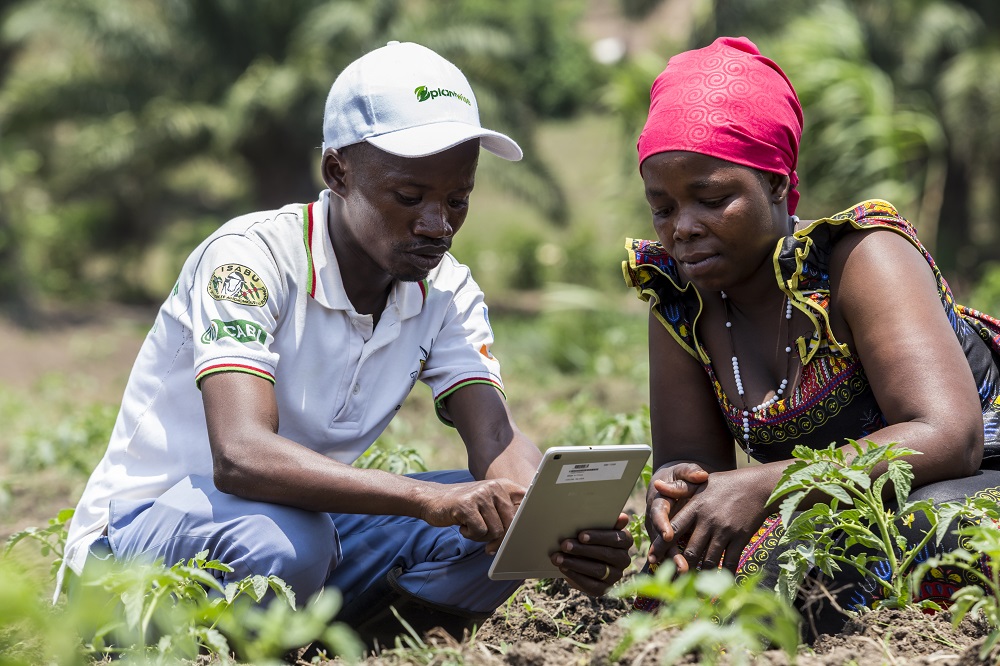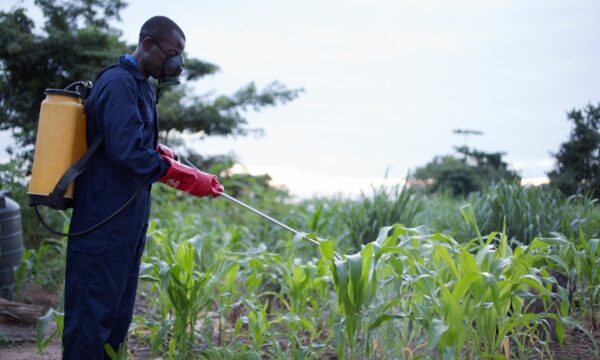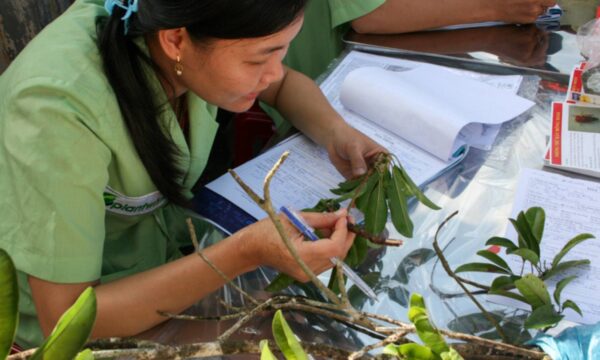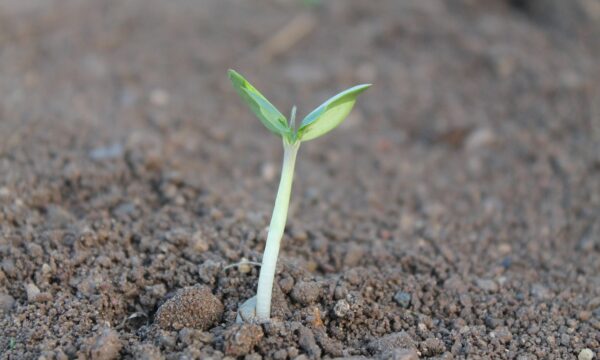
A CABI-led study has proposed seven key steps which should be taken to strengthen Burundi’s plant health system (PHS) and in doing so help improve the country’s food security and ability to tap into valuable export markets.
The research, published in the journal Sustainability, found that Burundi’s PHS at the time an assessment was carried out demonstrated inadequate skills to serve farmers and insufficient capacity to diagnose crop pests which can affect yields and livelihoods.
The study was also conducted together with colleagues from the Institut des Sciences Agronomiques du Burundi (ISABU).
Interventions proposed
Seven broad interventions have been proposed to help quickly strengthen the PHS of Burundi and include linking plant health policies, processes, planning and budgeting to the UN Sustainable Development Goals (SDGs) – particularly SDG2: Zero Hunger.
Other recommendations include the provision of sufficient plant health equipment and infrastructure and the supply of good-quality, affordable pest control products, diagnostic tools and other agricultural inputs.
Agriculture in Burundi employs 84% of the working population, provides 95% of the food supply and contributes nearly 40% towards the country’s gross domestic product. It also accounts for more than 90% of foreign exchange earnings and is the leading supplier of raw materials for the agro industry.
However, agricultural productivity in Burundi is hampered by several issues including crop pests and diseases, occasional droughts and floods, limited cash for inputs such as fertilizers and plant protection products, and inefficient use of water resources.
It is also impeded by land fragmentation, lack of cash and credit facilities among smallholder farmers and limited access to research and extension services.
Plantwise support
To respond to the challenges impeding agricultural productivity in Burundi, CABI, with funding support from the Embassy of the Netherlands in Bujumbura and Nuffic, introduced the Plantwise programme.
Plantwise has already trained more than 100 plant doctors who are providing high-quality advice to farmers in around 50 plant clinics. They are particularly helping farmers by correctly diagnosing their plant health problems and recommending how to efficiently manage these more effectively.
Farmers from other Plantwise countries have benefitted from an up to 30% increase in crop production. The ambition is to have similar impact in Burundi.
Burundi’s Ministry of the Environment, Agriculture and Livestock (MINEAGRIE) aims to build the capacity of at least 300 out of the 1,000 existing commune agricultural extensions workers as plant doctors within the next three years.
Dr Willis Ochilo, a lead author of the research, said, “Functional plant health systems have been integral in mitigating the movement of non-native organisms, pests, and diseases within and between countries through trade.
“However, in some countries, including Burundi, practitioners know little about the plant health system and other support systems which are part and parcel of the country’s ability to produce sufficient food for its people and for potential export.
“The understanding we now have of Burundi’s plant health system will help in the planning and implementation of measures to also improve its regional economic and environmental stability as well as its trading relationship with other countries.”
Additional information
Main image: A Plantwise plant doctor advises a farmer in Burundi on how to protect her crop from pests and diseases (Credit: CABI).
Full paper reference
Ochilo, W.N.; Toepfer, S.; Ndayihanzamaso, P.; Mugambi, I.; Vos, J.; Niyongere, C. Assessing the Plant Health System of Burundi: What It Is, Who Matters and Why. Sustainability 2022, 14, 14293. DOI: 10.3390/su142114293
You can read the paper open access here: https://www.mdpi.com/2071-1050/14/21/14293
Funding acknowledgement
CABI is an international intergovernmental organization, and we gratefully acknowledge the core financial support from our member countries (and lead agencies) including Australia (Australian Centre for International Agricultural Research), Canada (Agriculture and Agri-Food Canada), China (Chinese Ministry of Agriculture and Rural Affairs), the Netherlands (Directorate-General for International Cooperation), Switzerland (Swiss Agency for Development and Cooperation) and the United Kingdom (Foreign, Commonwealth and Development Office).
This assessment was facilitated by CABI’s Plantwise project in Burundi supported by the Embassy of the Kingdom of the Netherlands in Bujumbura, Burundi, contract number 4000004168 and Nuffic, grant number OKPTMT + .20/00062. The assessment was also supported in-kind by the Institut des Sciences Agronomiques du Burundi (ISABU) and the Directorate of Plant Protection (DPV) of MINEAGRIE of Burundi as part of the Plantwise Project.
Other relevant news story
See also the news story ‘Burundi steps up training efforts to meet country’s need for more Plantwise plant doctors.’
1 Comment
Leave a Reply
Related News & Blogs
How do pest risk registers address the spread of plant pests in Africa?
Pest risk registers can help to solve problems in agriculture, addressing the growing global threat of plant pests. Moreover, changing weather patterns, led by rising temperatures, are causing them to reproduce faster and expand into new regions. In ad…
10 July 2025





Thank you for the report. The assessment can help to improve PHS in my country Burundi